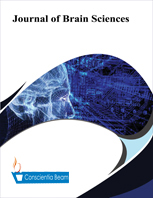Evidence of A Pharmacological Dissociation Between The Robust Effects of Methylphenidate on Adhd Symptoms and Weaker Effects on Working Memory
DOI:
https://doi.org/10.18488/journal.83/2015.1.2/83.2.43.53Abstract
Working memory (WM) deficits often co-occur with, but do not define, attention deficit hyperactivity disorder (ADHD). Preclinical and neuroimaging studies show that ADHD and WM deficits are dissociated at the level of individual dopamine receptor function. We hypothesized that there would also be a pharmacological dissociation of the effects of stimulants on ADHD and WM. ADHD subjects were derived from three prospective clinical trials involving treatment with OROS methylphenidate for at least 6 weeks. Subjects were adolescents and adults with DSM-IV ADHD with systematic assessments of WM and ADHD symptoms. Cohen’s d was used to evaluate effect size between baseline and week 6 for all assessments, and Pearson correlations were used to evaluate the relationship between assessments at baseline and between change scores for assessments from baseline to week 6. Cohen's d estimates for the Cambridge Neuropsychological Test Automated Battery spatial working memory measures differed significantly by 1.8 standard deviations (t= -10.8, df= 70, p < 0.001) and 1.9 standard deviations (t= -11.1, df= 70, p < 0.001) for the strategy and total between errors subcategories respectively. Confidence intervals did not overlap with those of the Adult ADHD Investigator Symptom Rating Scale (AISRS). A similar effect was observed for changes in AISRS and the Behavior Rating Inventory of Executive Function working memory scale where the Cohen's d estimates differed significantly by 1.1 standard deviations (t= -2.5, df= 137, p = 0.015) and confidence intervals did not overlap. These findings provide further evidence for the dissociation between ADHD and WM deficits.

